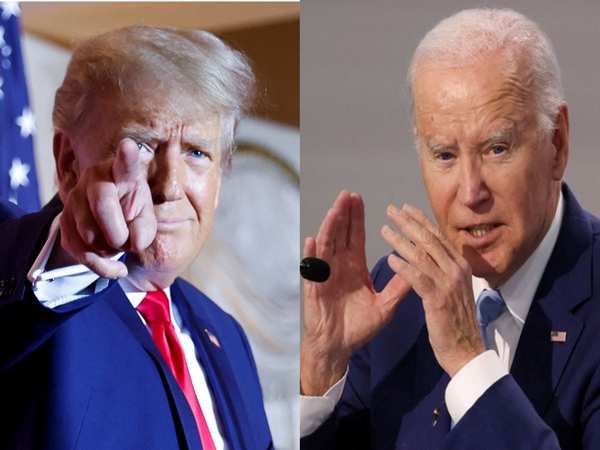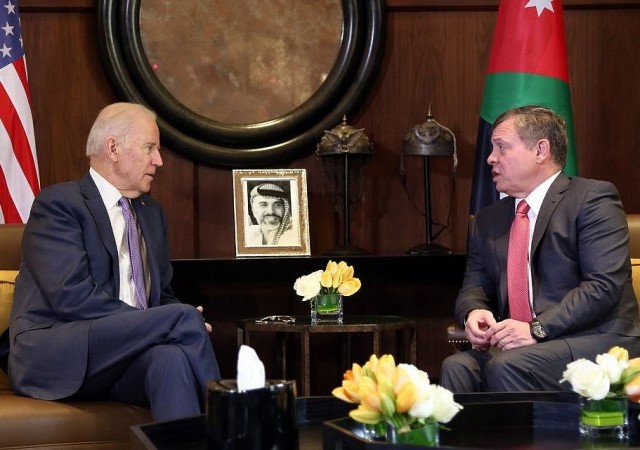Jordanian King Abdullah became the first Arab leader to meet the US President Joe Biden at the White House on July 19. By granting him this honour the new US administration is putting its weight behind Jordan to become the voice of the region and non-gulf Arab nations, once again.
As the Jordanian monarch for the last 22 years King Abdullah has been seen by American presidents as a moderate, reliable ally in the Middle East, besides being the eyes and ears from the Arab world in Washington.
However, during the last four years that special relationship was put into cold storage, as Donald Trump, favoured working with Saudi Arabia and the Gulf states instead.
For instance the Trump administration didn’t consulted King Abdullah, on the Mideast peace plan, which originally provided for annexation of the Jordan Valley.
Reports say that in his renewed role as a representative of moderate, pro-Western Arabs, Abdullah brought several messages to Biden.
Impact on Jordan-Saudi relations
President Joe Biden may have little appetite for Israeli-Palestinian peace-making efforts, but he seems determined to prevent certain third parties from exploiting the regional stalemate to their advantage.
Although the US’s and Biden’s foreign policy priorities are heavily focused on China and Russia, the Middle East is a region that the new administration understands very well it cannot afford to ignore.
Relations between Jordan and Saudi Arabia had their own ups and downs during the last four years. The Saudis were irked by King Abdullah’s fierce rejection of Trump’s recognition of all of Jerusalem as Israel’s capital. Jordan also refused to consider the president’s Israeli-Palestinian peace plan.
King Abdullah suspected that the US and Israel were favouring a Saudi role in the administration of the Muslim sites on the Temple Mount in Jerusalem. Jordanian officials denied reports last year in Israeli newspapersquoting Saudi diplomats as saying that Jordan was willing to grant Saudi Arabia observer status in the endowment administering the Muslim holy sites on the Temple Mount.
The Saudi interest is marked by various moves initiated by the country in recent years, though it has not officially declared its desire to wrest control of the Temple Mount from Jordan, yet.
Saudi King Salman announced at the Arab Summit in Dhahran in April 2018 that he was donating $150 million to support Islam’s holy places in Jerusalem. The donation was aimed to counter Turkish bequests. Saudi Arabia has since clashed with Jordan at various Arab forums over Jordan’s exclusive control of the administration of the Jerusalem sites and is believed to have been wooing Palestinian religious dignitaries to achieve its objective.
Here the risk for Saudi Arabia is that broadening the administration of the Jerusalem sites could lead to demands that the custodianship of Mecca and Medina should also be internationalised. This proposition, often put forward by Iran, sounds horrific to the Saudis.
For much of the past century, the administration of Jerusalem’s Muslim holy sites has vested in a Jordanian government-controlled endowment. And Jordan views the Saudi and other interested Islamic nation’s efforts as an affront, which certain observers also describe as the battle to emerge as the supreme leader of the Islamic world.
The stakes in the struggle for control of Muslim holy sites in Jerusalem sites are high. For Riyadh’s ruling Saud family, this is about bolstering its religious claim to leadership of the Muslim world.
For Jordan and its Hashemite monarchs, who trace their ancestry back to the Prophet Muhammad, this is more about politics than religion. Palestinians account for more than 40% of Jordan’s population, thus maintaining the status quo in Jerusalem—which most Palestinians hope to be the capital of a future Palestinian state—is key to ensuring the regime’s survival.
Despite Abdullah’s fraught relationship with the Saudi crown prince, the Jordanian monarch told Biden, “we have to work with MBS,” the sources said. This magnanimity stems from the confidence, which Abdullah has in revival of his ties with the new US administration.
Jordan as the regional peacemaker
King Abdullah also discussed Iraq and Syrian affairs with Joe Biden. It is reported that he urged Biden to back Iraqi Prime Minister Mustafa Al Kadhimi, who will be visiting the White House this week.
King Abdullah’s pro-Kadhimi argument were based on the fact that he enjoys support of Egypt, the United Arab Emirates and Saudi Arabia, as well as Jordan, and was described as the best bet to offset Iranian militias and influence in Iraq.
King Abdullah also urged Biden to join a task force to help stabilise Syria. The approach Abdullah advocates would bring together the United States, Russia, Israel, Jordan and other nations to agree on a road map for restoring Syrian sovereignty and unity.
Reports say that Biden hasn’t yet committed to the proposal, as it would mean realigning the US interest with both Russia and the Bashar Al Assad regime, both of which are controversial decisions to be made.
US academic Curtis Ryan, a widely acclaimed Jordanian expert opines that Jordan and its partners see the new three-way alignment or axis with Iraq and Egypt as an alternative power centre in Arab politics that will help to bring non-Gulf voices back to the forefront of Arab politics.
In this regard Egyptian President Abdel Fattah Al Sissi’s visit to Baghdad can be described as a “positive step” to limit Iranian influence there.
Bruce Riedel, a senior fellow at the Brookings Institution says that Abdullah has been the most energetic Arab leader by far in trying to support a stable Iraqi government. This summit in Baghdad of Iraq, Jordan and Egypt is the first time that the Sunni Arabs have ever done anything in 18 years since the fall of Saddam—that they have actually done something to not only stabilise Iraq, but to offset Iranian influence.
A final major area of discussion was Jordan’s relationship with the new Israeli government. Abdullah labelled a recent meeting he had with PM Bennett as reassuring, and said he trusts the two governments could cooperate on security and other issues. Although Jordan and Israel have a peace treaty, relations remained tense during Netanyahu’s long tenure as prime minister.
However, this time though King Abdullah has apparent support of POTUS, but he also will have to outmanoeuvre his younger rivals like Sheikh Mohammed of the UAE and Prince MBS of Saudi Arabia to regain the regional Islamic leadership.
(Asad Mirza is a political commentator based in New Delhi. He writes on issues related to Muslims, education, geopolitics and interfaith)



